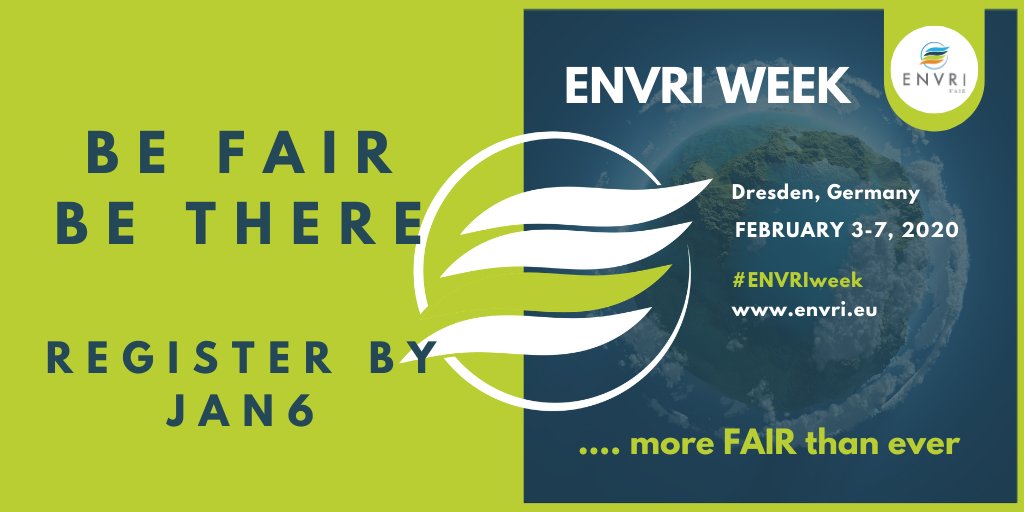
The ENVRI-FAIR project brings together 26 Research Infrastructures to build sustainable, transparent and trustworthy data services compliant with FAIR principles. Once a year, ENVRI Week is dedicated to Environmental Research Infrastructures so that Working Parties can report on progress and seek guidance on future developments. ENVRI Week 2020 was held in Dresden, Germany, from 3-7 February and attracted 40 participants. Morning plenary presentations broke into parallel sessions in the afternoon to address the requirements of the four subdomains: Atmosphere, Marine, Solid Earth and Terrestrial ecosystems and biodiversity.
For the first time a training event for data centre staff was featured, entitled ‘Terminologies for ENVRIs: Why, What & How’, presented by Clement Jonquet (University of Montpellier) and Markus Stocker (Knowledge Infrastructures research group), and also made available on Zoom.
WP6 of the Ecosystem & Biodiversity subdomain was tasked with providing relevant training materials. Maggie Hellström (ICOS) detailed the training needs analysis, the preparation of materials and the operation of the common platform. Lucia Vaira (LifeWatch ERIC) presented the improved user interface of the ENVRI-FAIR training catalogue populated with training resources and materials related to FAIR Data Principles and Research Data Management, graded by difficulty level, and emphasised the need to create a feedback group to test and expand the catalogue.
Nicola Fiore (LifeWatch ERIC) guided participants through the ENVRI Community Training Platform resources, from Species Distribution Modelling to serious games, and from the ‘Why, What and How’ programme, to the ENVRI-LifeWatch ERIC International Summer School Data Fairness, a new edition of which will be offered in 2020.
LifeWatch ERIC Service Centre Director Alberto Basset reported back to the plenary on the progress made in WP11 and Task Force experts from the Research Infrastructures present worked together to set objectives for the coming year. ENVRI Week demonstrated that European Research Institutes share the ideals of groundbreaking research, empowering users, democratised science, and improved data discoverability.